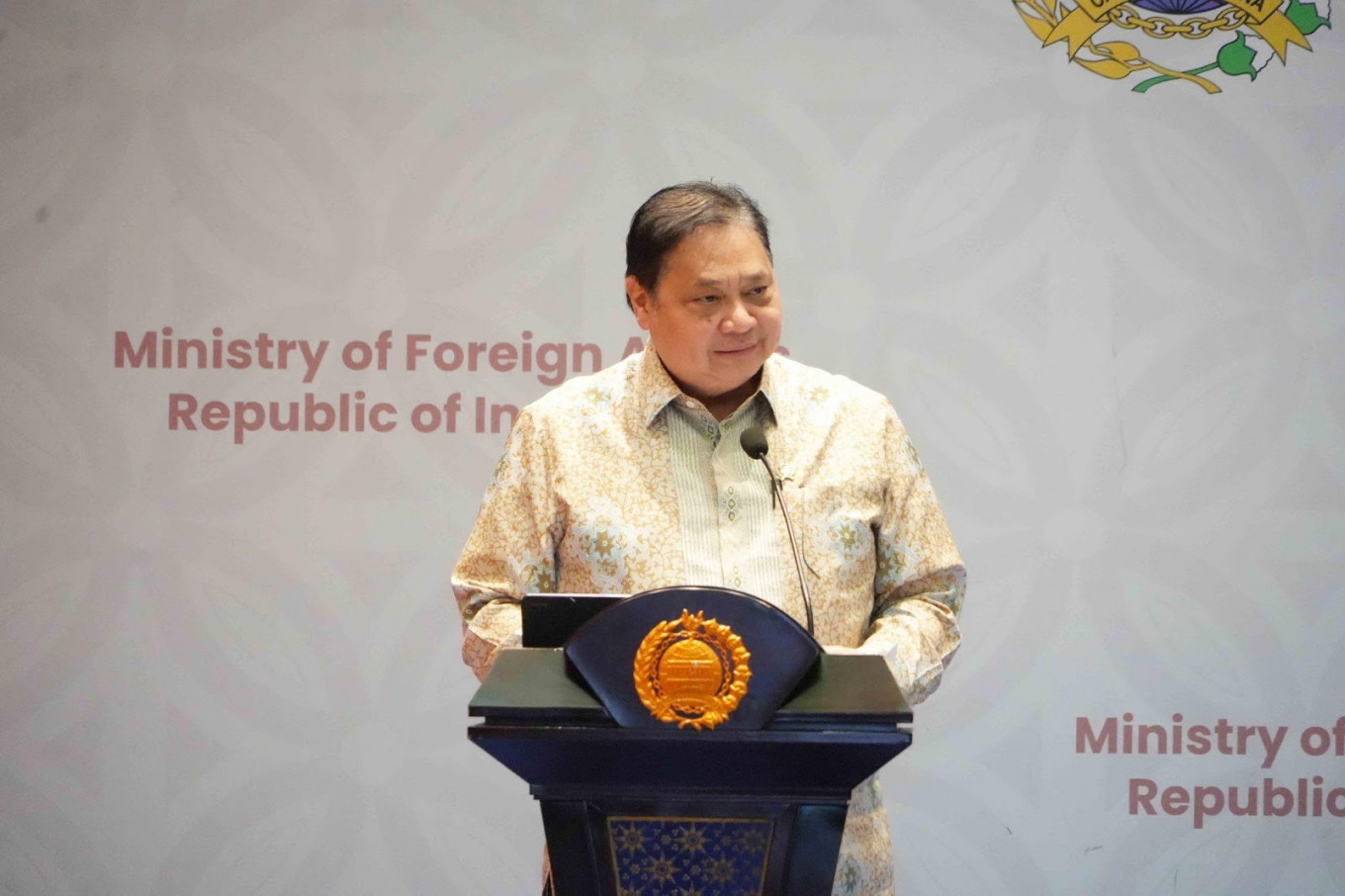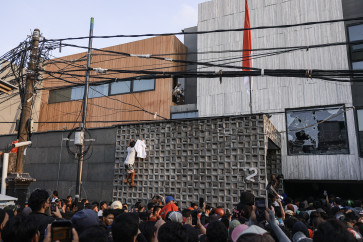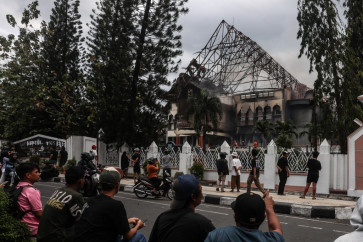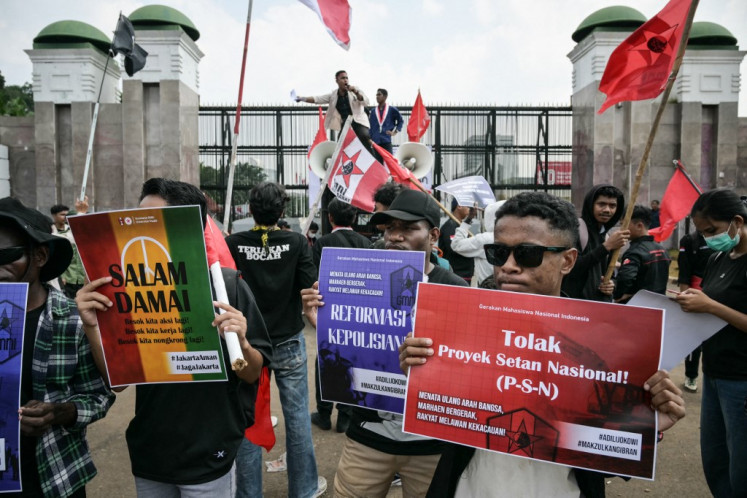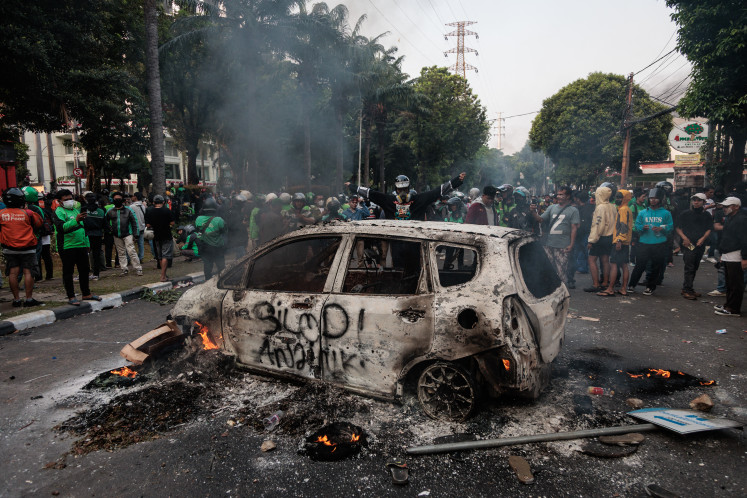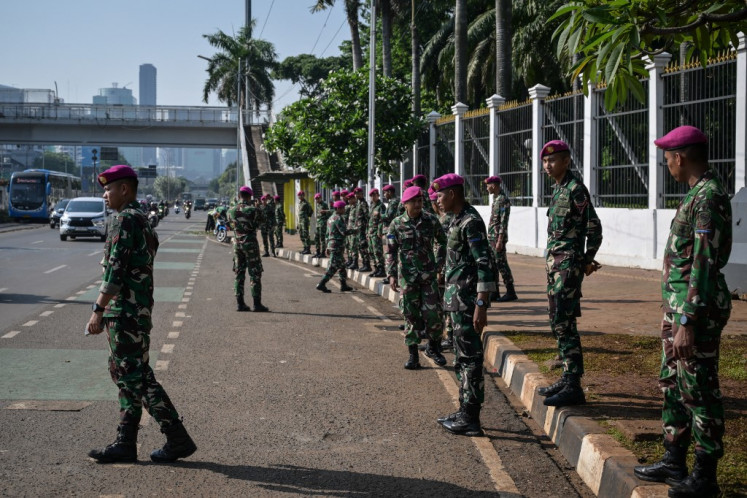Popular Reads
Top Results
Can't find what you're looking for?
View all search resultsPopular Reads
Top Results
Can't find what you're looking for?
View all search resultsAirlangga urges ambassadors to promote ‘Indonesia Incorporated’ on global stage
Change text size
Gift Premium Articles
to Anyone
I
ndonesia’s economy has shown resilience over the past decade, maintaining stable growth at around 5 percent and keeping inflation within target levels. Its external sector remains solid, with a narrowing current account deficit, consistent trade surpluses, manageable foreign debt and robust foreign exchange reserves.
To accelerate this momentum, Coordinating Economy Minister Airlangga Hartarto emphasized the importance of a unified national approach, "Indonesia Incorporated,” and stronger nation branding efforts. Speaking during an orientation for newly appointed Indonesian ambassadors at the Foreign Ministry on Thursday, he said these envoys play a crucial role in projecting Indonesia’s image and advancing its economic interests abroad.
“President Jokowi expects higher growth. According to the 2025–2029 National Medium-Term Development Plan (RPJMN), we’re targeting 8 percent growth by 2029. To stay on track, we need to grow by about 5.8 percent next year,” Airlangga said.
Indonesia’s global competitiveness ranking rose to 27th out of 67 countries in the World Competitiveness Ranking 2024, up seven spots from the previous year. Within ASEAN, the country ranks third after Singapore and Thailand. This improvement reflects progress in economic performance, government efficiency and business productivity.
The country also maintained stable credit outlooks in the first half of 2025, with Moody’s rating Indonesia at Baa2, and Fitch and S&P at BBB. Strong domestic demand and credible fiscal and monetary policies were noted as key factors in sustaining economic resilience.
Airlangga emphasized the need to accelerate government spending and stimulate investment, particularly through capital formation and the development of special economic zones (SEZs). He also underscored the importance of international cooperation and Indonesia’s active role in various economic forums.
Looking ahead, the government will continue to diversify export markets and trade partners to reduce dependency on traditional markets. It will also strengthen downstream industries, especially in natural resources like nickel and bauxite, to boost value-added production, create jobs and secure Indonesia’s place in global supply chains.
In addition, the government is committed to digital transformation, creative economy development and enhancing food and energy security through domestic production, agricultural modernization and renewable energy expansion.
Airlangga called on ambassadors to embody the spirit of “Indonesia Incorporated” by aligning with national policies and promoting the country’s trade, tourism and investment potential. “Our overseas representatives must serve as the front line in shaping Indonesia’s image globally,” he said.
The orientation was also attended by Economic and Investment Cooperation Deputy at the Coordinating Economy Ministry Edi Prio Pambudi and Director General for American and European Affairs at the Foreign Ministry Umar Hadi.

